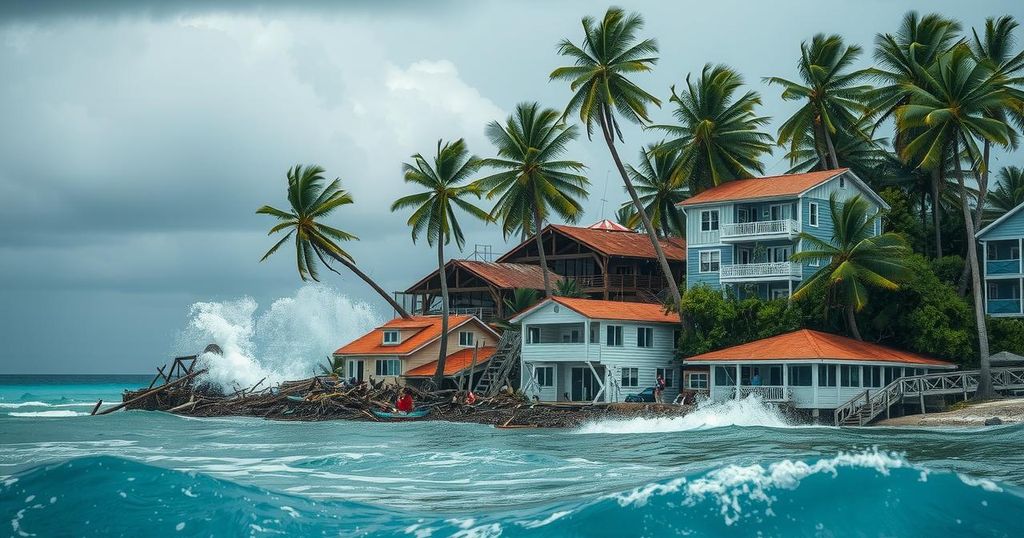In December 2023, Cyclone Chido devastated Mayotte, leading to catastrophic damage and at least 35 fatalities. This influential storm, the worst in 90 years, resulted in extensive infrastructure destruction and left significant portions of the island inaccessible. Urgent humanitarian aid has been mobilized by the EU and other nations to aid recovery efforts amidst growing concerns regarding climate vulnerability in the region.
In December, Cyclone Chido, a Category 4 storm with unprecedented intensity, struck the French archipelago of Mayotte, causing severe devastation. The cyclone, the worst in nearly nine decades, resulted in at least 35 fatalities, with concerns the death toll may increase. Wind speeds reached up to 136 miles per hour, obliterating neighborhoods, schools, and hospitals alike. The storm’s aftermath rendered much of the island inaccessible due to widespread power outages and communication failures.
Mayotte, situated between Madagascar and Mozambique, is highly susceptible to climate change effects. This storm serves as a stark reminder of the vulnerability of regions prone to extreme weather and the urgent need for effective climate response measures. Just five years ago, neighboring Mozambique experienced catastrophic damage from Cyclones Idai and Kenneth, highlighting a persistent pattern of destructive storms exacerbated by rising global temperatures.
In response to the devastation, the European Commission has mobilized emergency aid for affected communities. Nations such as Belgium, Germany, Italy, and Sweden have offered support through shelter and supplies. The EU’s Copernicus Emergency Management Service has produced maps to facilitate relief efforts in both Mayotte and Mozambique. Nearly $1 million in humanitarian aid has been allocated to Mozambique, focusing on critical necessities such as water, shelter, and healthcare.
Cyclone Chido’s catastrophic impact underscores the increasing frequency and intensity of tropical storms linked to climate change. Mayotte, an archipelago situated in a region vulnerable to extreme weather patterns, suffered unprecedented destruction reminiscent of previous tragedies, such as the back-to-back cyclones that hit Mozambique. Both the French Development Agency and climate organizations have highlighted Mayotte’s exposure to climate-related threats and the imperative for sustainable energy solutions to combat these challenges.
The devastation inflicted by Cyclone Chido on Mayotte serves as a crucial indicator of the escalating threat posed by climate change and extreme weather events. International cooperation and immediate humanitarian assistance, along with long-term strategies to address climate vulnerabilities, are essential in safeguarding affected regions. The necessity for a transition to renewable energy sources has never been more apparent, as these tragic events illustrate the urgent need for a sustainable future.
Original Source: www.thecooldown.com






